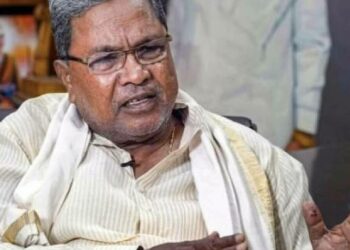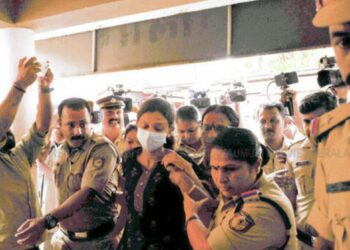Karnataka Health Minister Dr. K Sudhakar on Tuesday launched the ‘Karnataka Brain Health Initiative’, which is said to be a first-of-its-kind initiative in the country being undertaken by the National Institute of Mental Health and Neurosciences (NIMHANS) in association with NITI Aayog.
Under the initiative, which is being rolled out in Bengaluru, Kolar, and Chikkaballapur districts on a pilot basis, doctors will be trained in screening and treating mental health patients, Sudhakar said at the virtual launch of the programme.
Ever since the beginning of the COVID-19 pandemic, the state government has been helping people to cope with mental health issues in association with NIMHANS, he said. Under this Brain Health Initiative, even general physicians will be trained in mental healthcare.
”We have conducted thousands of mental health counseling sessions with COVID-infected persons and their family members. Since mental health has a bearing on physical health and overall wellness of the individual, we need to ensure that everyone is aware of mental health issues,” the minister explained.
He also emphasized the need to even screen newborn babies for mental health issues.
”Due to various socio-economic factors, genetic and family issues, many people suffer from mental health issues. This will have an impact on their day-to-day lives and quality of life. Therefore we need more doctors trained in mental healthcare,” he pointed out.
Speaking about COVID-19, Sudhakar said the positivity rate has been less in other districts in the state except for Bengaluru. The positivity rate, according to him, was about 22 percent last week, which has increased to 32 percent.
About 5,230 infected people were hospitalized, including 3,442 in government and 1,788 in private hospitals, he added. ”Only about 2 percent infected persons out of 3.62 lakh active cases are hospitalized, which indicates that the severity of infection is not as high as it was during the second wave. It is generally seen that people are recovering within 5-6 days, so there is no need to panic. However, people must not let their guard down,” the minister cautioned.
Citing the Indian Council of Medical Research (ICMR) report, he opined that the third wave may recede by February second or third week. The minister claimed that 100 percent first dose and 84 percent second dose coverage has contributed a lot in reducing severity and hospitalization.
Speaking about the Vision Document on Health, which will be rolled out on January 28 when Chief Minister Basavaraj Bommai completes six months in office, Sudhakar said it lays down a comprehensive roadmap for an overhaul of public health care at all three levels — primary, secondary, and tertiary.
There are about 30 senior experts from various disciplines who were working on this report and about 750 experts have contributed to this over the last one year, he added.


















Discussion about this post